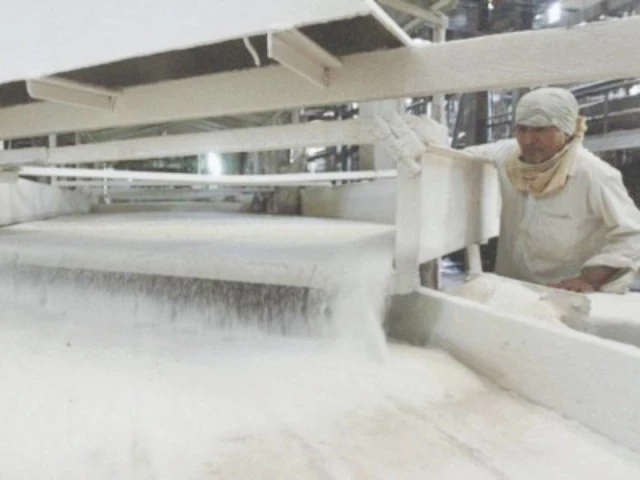ECC mulls free sugar market
Asks food security ministry to conduct analysis of value chain

As allegations of cartelisation among sugar millers resurface in the face of rising prices, the government is mulling over giving a free hand to the industry for fixing prices along with export and import of the sweetener.
The government has already started following this model by deregulating wheat supplies, but it left farmers at the mercy of middlemen.
Wheat farmers are complaining about low prices of their produce in Punjab, forcing them to switch to other crops, which may trigger a food crisis in the country.
Sources told The Express Tribune that Pakistan's economic managers asked the Ministry of National Food Security and Research to come up with a comprehensive analysis of the sugar sector value chain to pave the way for its deregulation.
In a recent meeting of the Economic Coordination Committee (ECC), they discussed issues pertaining to sugarcane production, crop zoning, water consumption, storage, import and export of sugar.
Meeting participants proposed that deregulation of the entire sugar sector should be contemplated, rather than resorting to piecemeal solutions, which would prove counterproductive.
They stressed that the impact of deregulation on storage and demand-supply of sugar should be assessed and a holistic picture should be presented to the ECC by the food security ministry.
At present, consumers are paying higher prices due to the monopoly of millers, which has prompted the Competition Commission of Pakistan (CCP) to keep a close watch on the situation.
The commission, in its earlier statement, said that it was actively working to curb cartelisation in the sugar industry, promote fair competition and protect consumers.
In 2020, the CCP launched an inquiry into the sector, which revealed that sugar mills were engaged in price fixing and controlling supply through coordinated actions, facilitated by the Pakistan Sugar Mills Association (PSMA).
Consequently, in August 2021, the CCP imposed penalties of Rs44 billion on sugar mills and the PSMA. However, the decision was challenged in courts and stay orders were issued by Sindh and Lahore High Courts as well as the Competition Appellate Tribunal.
The CCP's first inquiry in 2009 found evidence of PSMA's involvement in price fixing and manipulation of production and supply quotas. Later, the CCP issued show-cause notices to certain mills and the PSMA, however, the proceedings were stayed by Sindh High Court.
Over the years, the CCP has issued multiple policy notes (2009, 2012 and 2021), recommending federal and provincial governments to reduce market distortion.
According to a report submitted to the federal cabinet, the retail price of sugar had exceeded the benchmark set by the government, necessitating a halt to exports. However, the Ministry of Industries continued to support millers in their attempts to sell sugar in global markets.
The report also revealed that some mills failed to pay growers from export proceeds, which further violated the government's conditions.
The ECC had initially allowed sugar export by linking it with a specific price benchmark, with the provision that exports would be stopped if the retail price exceeded the threshold.
A report of the Cabinet Committee on Monitoring Sugar Exports confirmed that the retail price had surpassed the benchmark, prompting calls for a halt to exports.




















COMMENTS
Comments are moderated and generally will be posted if they are on-topic and not abusive.
For more information, please see our Comments FAQ